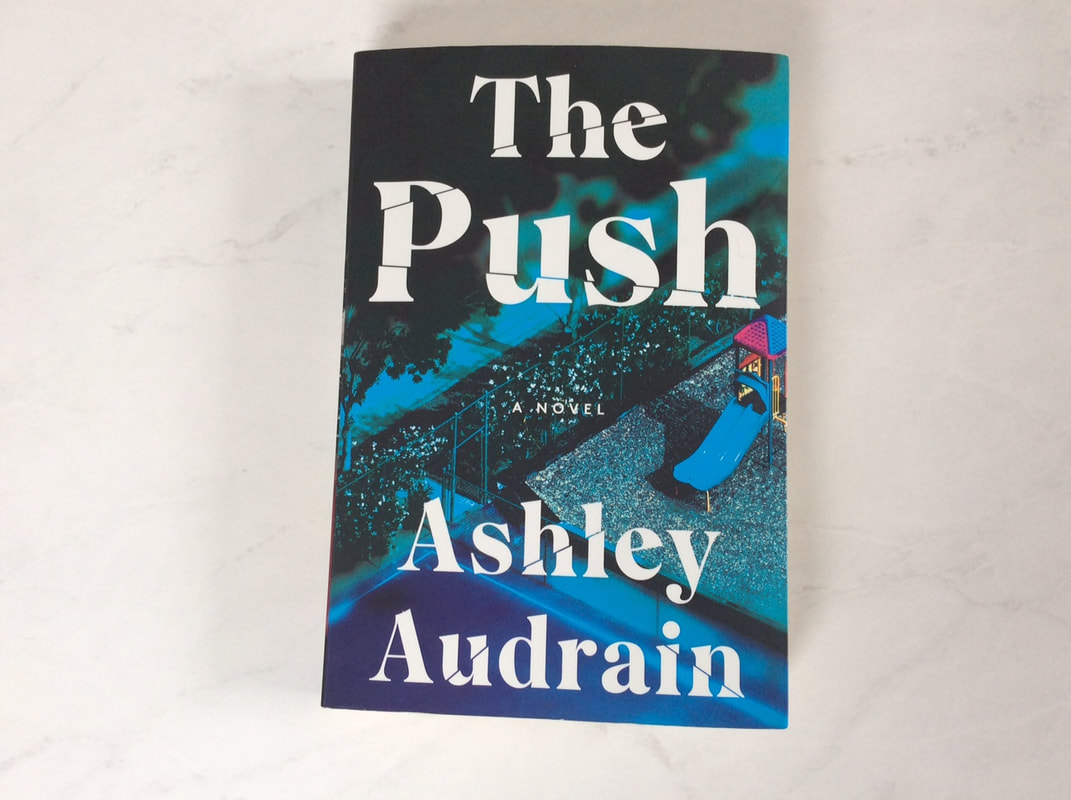|
http://www.jonimacfarlane.com/blog
In my younger days, I badly wanted children. An ectopic pregnancy shattered that dream and a series of unsuccessful IVF treatments put the nail firmly in the coffin. Instead, I watched women struggle to raise their children with admiration, envy, and occasionally gratitude for my childless fate. Motherhood, it seems to me, is a combination of heartbreak and sorrow, joy and reward. Some get more of the former while others, the lucky ones, get more of the latter. Most, I believe, are just trying to do their best. As one mother told me, at the end of the day, sometimes all you can do is keep loving them. But what if there is a flaw so monstrous it’s unforgivable? What if loving them becomes unbearable? What if you’re just not cut from motherhood’s necessary cloth? This is the premise of The Push, a debut novel from a new Canadian writer. Blythe Connor is determined to be the perfect wife and mother, despite a generational history that casts grave doubts on her ability to be either. Her young husband, Fox, comes from a loving family and is keen to pass on his happy childhood to his own children. The couple approach their first pregnancy much like most young parents: a mix of trepidation, excitement, nervousness, and awe. From the start, Blythe is uneasy with their daughter, Violet. During her first night in the hospital, she feels that surge of emotion and oxytocin, but admits, “A part of me knew we would never exist like that again”. Inevitably, her prediction is true. Violet and her father form an instant unbreakable bond, but the relationship between mother and daughter is fraught with anxiety. Noticeably absent is any sense of joy or wonder. Eventually, we see the seismic shift in the couple’s marriage, told with subtle honest prose. I’m not going to spoil the plot for those who haven’t read it, but we just know things are not going to get any better. And in fact, they get worse. Much worse. Blythe struggles to match her husband’s, society’s, and her own, expectations to be a good mother. The only role model she has for the job is her mother-in-law who comes across as a sympathetic ally for Blythe. We watch as Blythe tries to do the right thing and empathize with her sleeplessness, anxiety, and increasing desperation. There are times when her actions were so entirely wrong I wanted to shake her. But then, it was all so sad. Blythe knew she was failing the test and “desperately wanted life to feel good”. Just when she thinks things might be turning around, Violet, shows just what she’s made of. And it’s not all kittens and rainbows. It’s chilling and dark. There are several instances when Violet’s behaviour is called to attention, but Fox refuses to see anything wrong with his precious little girl. I imagine there are readers who judge Blythe’s actions and it would be easy to chalk up her difficulties to postpartum depression if it weren’t for her dysfunctional family history. I found her mother and grandmother’s stories a bit intrusive and almost confusing until I finally got straight who was who. Their stories could have been woven into Blythe’s with a little more finesse, but that’s a minor quibble. Blythe’s story is told with an unflinching eye in sharp, tight language, almost exclusively in the second person. I couldn’t put it down. I couldn’t look away. Heartbreaking in its honesty and raw truths, this book is disturbing and utterly compelling. There are no easy answers here and since Blythe is more than a little off-kilter, it’s hard to know whose side to take. And that’s the brilliance of it. Lastly, a shout-out to the title so full of meaning and nuance. I’ll never know what kind of mother I would’ve made, but I feel for those who take it on. As Blythe says, "A mother's heart breaks a million ways in her lifetime". So here’s to all the mothers. Congrats for everything you do. Stay safe, my friends, and get whatever vaccine is available to you whenever it’s available. In the meantime, happy reading. Joni
0 Comments
Leave a Reply. |
Archives
July 2024
Categories |

 RSS Feed
RSS Feed
